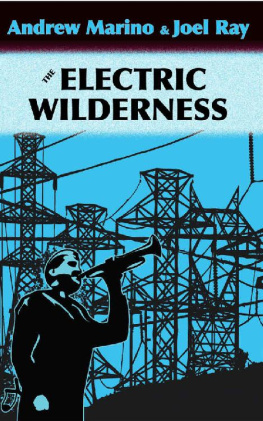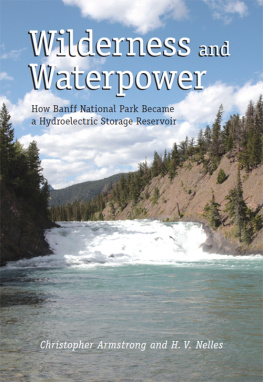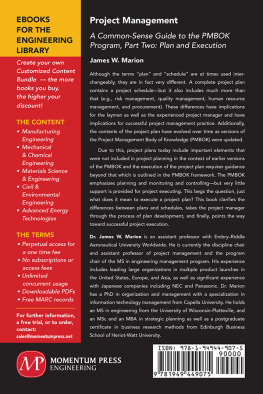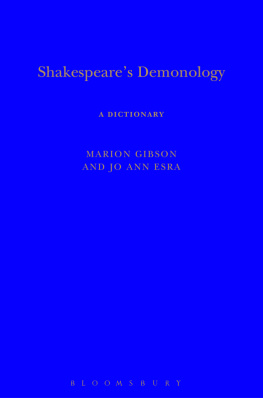Andrew Marion - The Electric Wilderness
Here you can read online Andrew Marion - The Electric Wilderness full text of the book (entire story) in english for free. Download pdf and epub, get meaning, cover and reviews about this ebook. year: 2011, publisher: Cassandra, genre: Science. Description of the work, (preface) as well as reviews are available. Best literature library LitArk.com created for fans of good reading and offers a wide selection of genres:
Romance novel
Science fiction
Adventure
Detective
Science
History
Home and family
Prose
Art
Politics
Computer
Non-fiction
Religion
Business
Children
Humor
Choose a favorite category and find really read worthwhile books. Enjoy immersion in the world of imagination, feel the emotions of the characters or learn something new for yourself, make an fascinating discovery.
- Book:The Electric Wilderness
- Author:
- Publisher:Cassandra
- Genre:
- Year:2011
- Rating:5 / 5
- Favourites:Add to favourites
- Your mark:
- 100
- 1
- 2
- 3
- 4
- 5
The Electric Wilderness: summary, description and annotation
We offer to read an annotation, description, summary or preface (depends on what the author of the book "The Electric Wilderness" wrote himself). If you haven't found the necessary information about the book — write in the comments, we will try to find it.
The Electric Wilderness — read online for free the complete book (whole text) full work
Below is the text of the book, divided by pages. System saving the place of the last page read, allows you to conveniently read the book "The Electric Wilderness" online for free, without having to search again every time where you left off. Put a bookmark, and you can go to the page where you finished reading at any time.
Font size:
Interval:
Bookmark:
THE ELECTRIC WILDERNESS
Andrew Marino and Joel Ray
With a Preface by Robert Becker
Copyright 2011 by Cassandra Publishing
P.O. Box 26, Belcher, LA 71004, USA
Printed in the USA
The transcript of a portion of the television interview conducted by Dan Rather (pp. 70-72) was originally broadcast on 13 February 1977 over the CBS Television Network as part of the 60 Minutes program series ( 1977 by CBS, Inc.; all rights reserved).
To Linda and Marilyn
PREFACE
The development electromagnetic energy for power and communications is widely regarded as a boon to mankind and even as the manifestation of civilization at its finest (review by Samuel C. Florman of Networks of Power by Thomas P. Hughes (Johns Hopkins, 1984), in The Sciences , New York Academy of Sciences, 1984.) Although one cannot dispute that mankinds mastery of this silent force is most responsible for our present global technology, disquieting questions have arisen over its present safety and the wisdom of continued unlimited expansion in its use. The electromagnetic force is, like the nuclear force, one of the four basic physical forces of the universe. While the ego of some men exults in mastering giant forces, have we once again acted like children playing with fire? Thus far we have been able to keep the nuclear genie for the most part in the bottle, but the electromagnetic genie is out of the bottle and all around us. There is no place left on earth that is free of manmade, abnormal electromagnetic radiation. Have we already done perhaps irretrievable harm to the biota, or is there time to step back, look at what we have done, and plan for a safe, logical, and environmentally sound use of this silent force?
When I set in motion the affair described in this book with my letter to Joseph Swidler, then head of the New York Public Service Commission, I navely believed that the questions I raised over the possible hazards of powerline radiation would be settled by the logical, dispassionate methods of science. As The Electric Wilderness shows, that was most certainly not the case. Our arguments, based on what we considered clear scientific data, were met with a ferocious onslaughtnot only against our data but our reputations and even our livelihoods. Legal, political, and bureaucratic maneuvering extended from the local level to the highest levels of the Federal government. Why? Was it simply that we were calling into question a favorite technological application and with it the egos of the engineers, or that our actions might diminish the profits of the industries concerned?
In my opinion we faced a concerted and coordinated effort to suppress the truth, which emanated from the military establishment and was simply aided and abetted by the greed of the utilities and the tarnished testimony of scientists for hire. Today the military is planning and constructing the largest expansion of electromagnetic emitting facilities in history, with the aim of fighting and winning the next World War. In the process the very population, culture, and civilization they are sworn to protect may be placed at risk. Although someone has apparently weighed the relative risks and decided that this was the path to follow, the decision has been made not only without input from the citizens, but with every effort to conceal the risk from them. It seems the same mind-set that led to disaster in Vietnam is still operatingthat in order to save the village from Communism, we have to destroy itonly now the villagers are not our enemies but our own citizens.
The decisive information that would help citizens contest this expansion will not be available; as this is being written, the decision has been made to terminate all Federal funding for electromagnetic hazards research. Thus those of us still committed to this fight are effectively deprived of the conclusive proof of hazard which has just begun to emerge. If a serious hazard does exist, no one is to know about it, least of all the citizens of the village. If opposition to a facility develops, no matter how small or obscure, the full weight and power of the establishment will be brought to bear to insure that it is constructed, and that all questions of health hazards are submerged in a sea of doubletalk and outright deception.
The citizens of this country are poorly served by the present system. They lack funds, battalions of lawyers, paid scientific experts, and organization. Their one source of power, concerted action at the ballot box, is continuously subverted by misinformation and distortion. Meanwhile the issue is obfuscated, the public is convinced that no hazard exists, and the scientists who insist on open and public debate are unmercifully attacked.
This book is important not only in the issue it raises of the probable hazard of electromagnetic technology, but in the hazards it reveals that are the result of raising the issue . It spotlights the present defects in our political system that leave the citizen defenseless against the powerful manipulations of the government. The truly important questions of our time are those relating to technology and its uses and abuses in relation to human beings. The public has a right to the relevant scientific information, and cannot be denied the right to have a voice in decisions that affect their health, safety, and quality of life. However, though scientists can provide the information, any scheme that calls for experts to make the decisions of relative risk tends to have little value. The only valid and ethical risk analysis must be made by those who are at risk. That requires that citizens have access to the truth. The Electric Wilderness is the truth.
Robert O. Becker, M.D.
Lowville, N.Y., 1985
AUTHOR'S NOTE
T he collaboration with Andy Marino which led to this book began, for me, well before we actually metreading his remarkable testimony in the New York hearing, then later watching twelve friends get arrested for resisting the States right of eminent domain at the Barses farm in Fort Covington, N.Y. By instinct and profession I was deeply impatient at the violations of language and common sense with which the more rapacious technologies (modern prisons, nuclear plants, atomic weapons) were defended. But what seems today a foregone conclusion regarding my involvement as a writer in the powerline issue was certified only when, in March 1977, I saw Andy in action on the witness stand. Here, I recognized, was a man who not only understood the real issue, but had the scientific wherewithal and especially the will to make that understanding stick. It was, and is, a rare combination of qualities.
It took a while after we decided to write the book to realize that the story had to be told in the first person. Although we planned and wrote it together, the experience it described was Andys; the form of the book had to reflect that.
My understanding of science and policy issuesand of the human issues behind themhas been greatly broadened by work on this book. I hope the reader, too, will learn something of value from this experience as our society tries to come to grips with the destructive effects of its expertise.
Joel Ray
Ithaca, N.Y.
DEFINITION
NIEMR ( nee mer ), n. acronym for nonionizing electromagnetic radiation; a form of electrical energy emitted by transmission lines, radio and TV towers, microwave ovens, radar, electric blankets, CB radios, etc. Synonyms: microwaves, electromagnetic waves, electric waves, electric signals, electric rays, electric fields, magnetic fields, electromagnetic fields.
Note: Although there are many variations in types of NIEMRs (in frequency, strength, waveform, etc.), the generic term is used in this book. For further clarification, the reader is encouraged to consult the sources listed in the Selected Reading List beginning on p. 111.
Next pageFont size:
Interval:
Bookmark:
Similar books «The Electric Wilderness»
Look at similar books to The Electric Wilderness. We have selected literature similar in name and meaning in the hope of providing readers with more options to find new, interesting, not yet read works.
Discussion, reviews of the book The Electric Wilderness and just readers' own opinions. Leave your comments, write what you think about the work, its meaning or the main characters. Specify what exactly you liked and what you didn't like, and why you think so.







